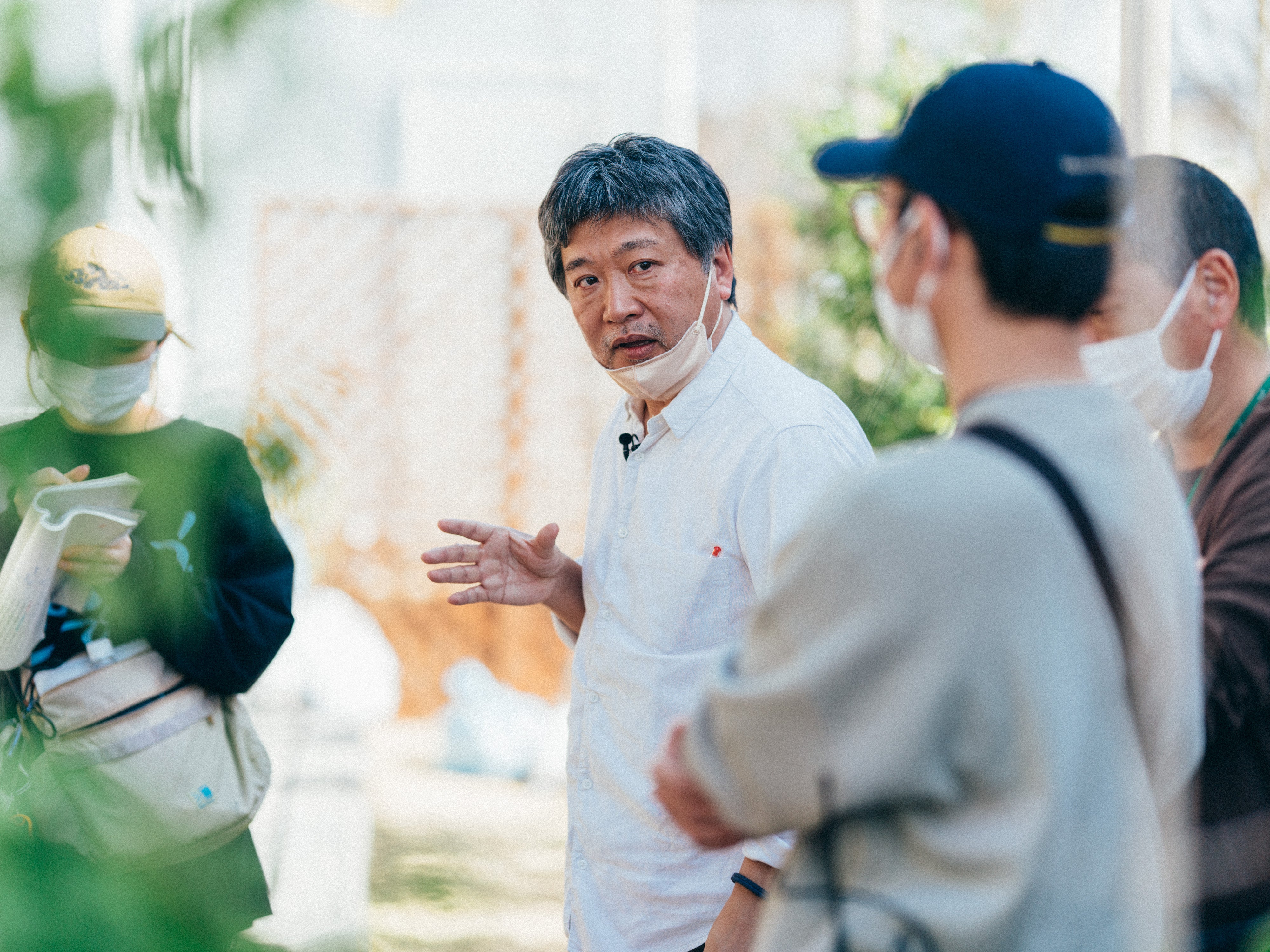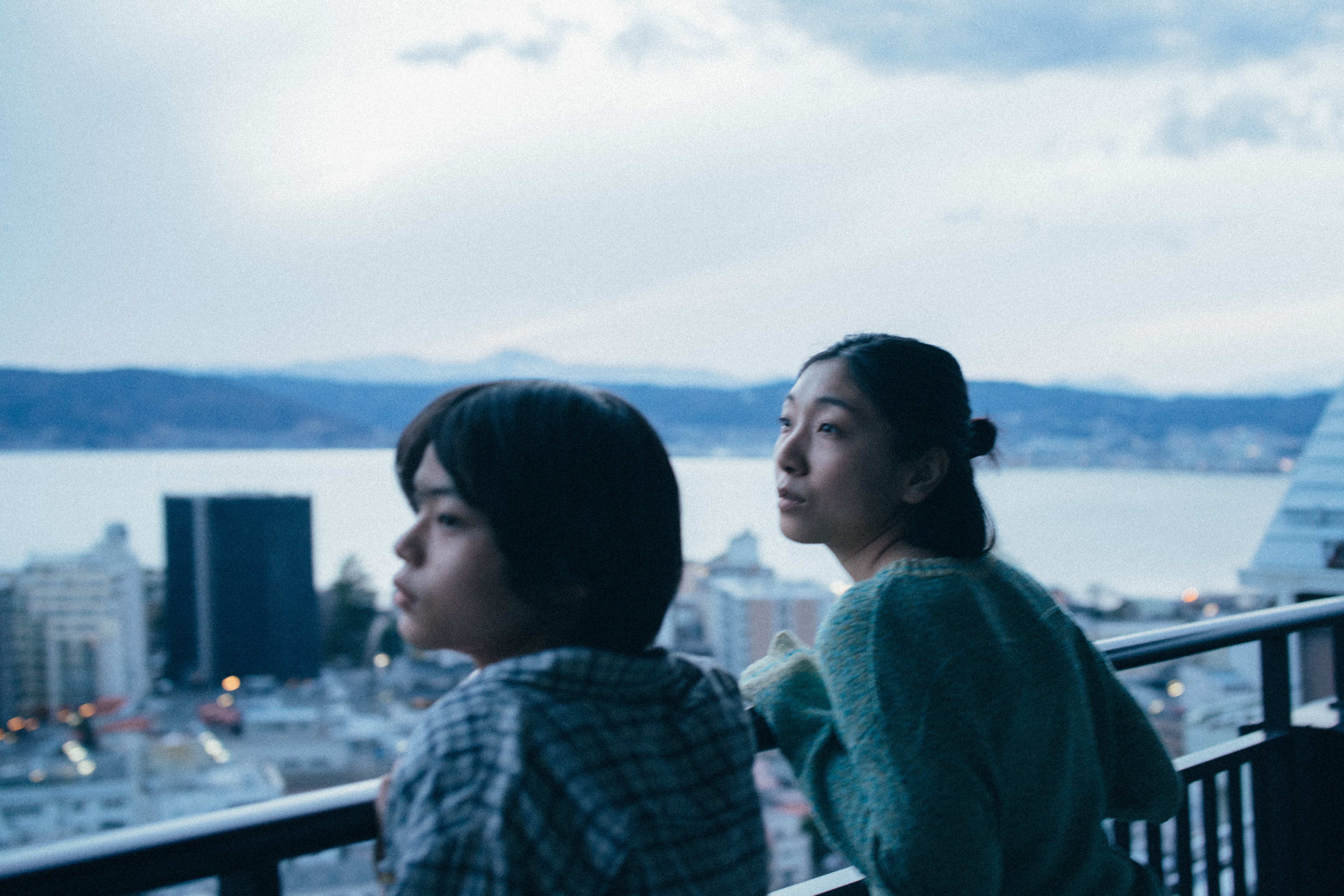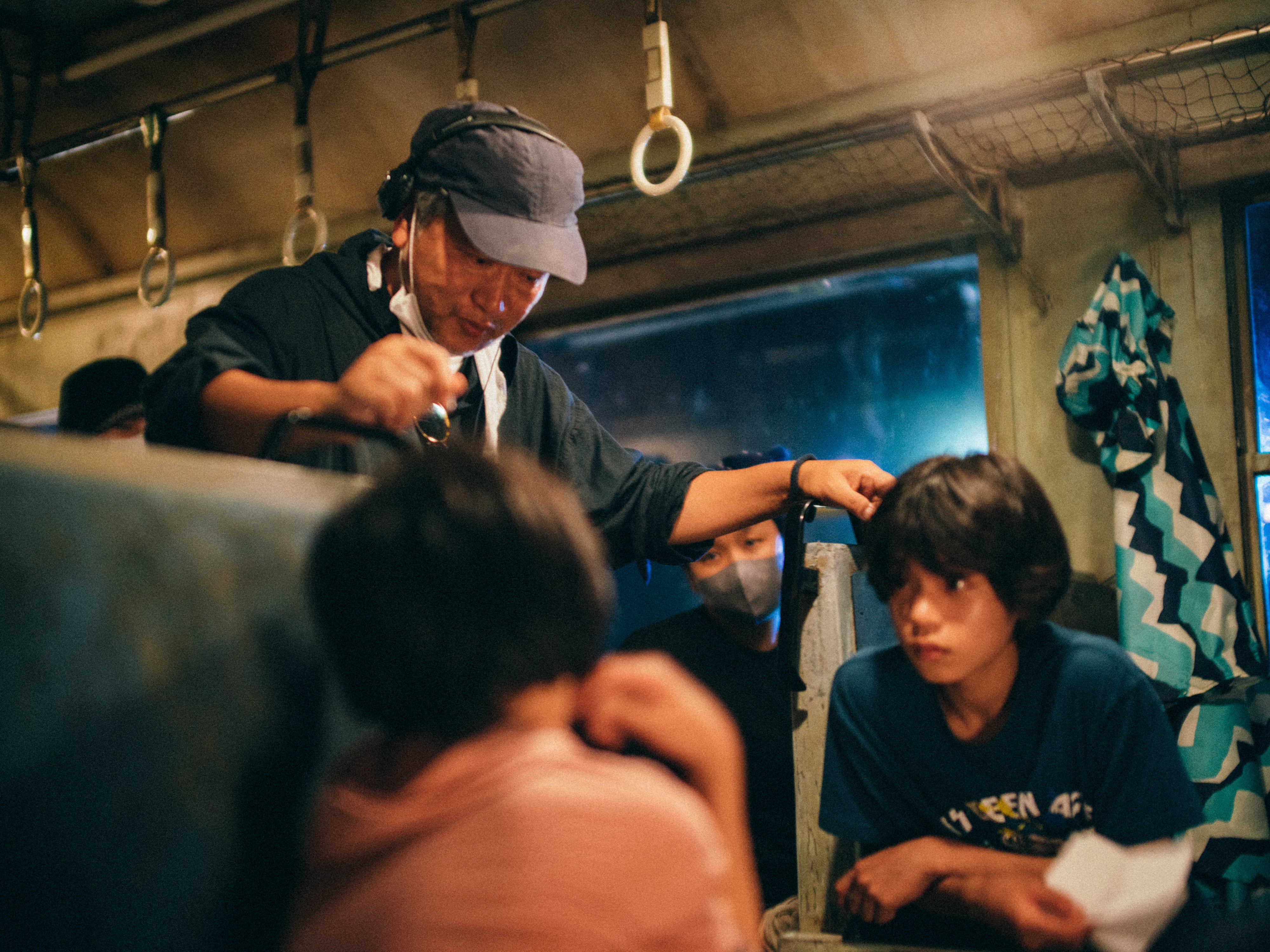Monsters and closets: Behind Japan’s groundbreaking new film exploring queer childhoods
Louis Chilton speaks to award-winning filmmaker Hirokazu Kore-eda about his powerful new film ‘Monster’, which follows two young schoolboys who find themselves drawn to each other


The greatest knowledge we can pass on is empathy,” said John Cameron Mitchell, the filmmaker behind the totemic queer musical Hedwig and the Angry Inch. He was speaking in his capacity as the chair of the Cannes Film Festival’s Queer Palm jury last year, while awarding the prize to Hirokazu Kore-eda’s Monster. The first Japanese film to win the award, it is a moving and formally ambitious story of two young schoolboys who find, in each other, young and innocent love. “We as queer people – who cannot and do not wish to conform – honour this film because its maker understands that the outsider is a shaman,” Cameron Mitchell continued. “The outsider possesses secret knowledge that is vital to the evolution and survival of our society.”
Kore-eda, 61, has spent much of his career exploring the lives of outsiders, whether it’s the grief-stricken Yumiko in his 1995 breakthrough film Maborosi, the down-on-his-luck private dick Ryota in 2016’s After the Storm, or the found family of petty thieves in 2018’s Palme d’Or-winning Shoplifters. But the latest film from the director – one of the best and most profoundly humanistic filmmakers working today – sees him venture into new and delicate territory.
“When they gave it [the Queer Palm], I heard the jury reading out the comments, and they said that this was a film that shone a light on people who weren’t able to adapt to society,” Kore-eda says, speaking to me over Zoom via a translator. “It made me think, actually, yeah, that is pretty much what I was trying to do.”
Monster is split into three parts, each following a different character’s perspective. The first follows Saori (Shoplifters’ Sakura Andō), a single mother who becomes concerned by the self-destructive behaviour of her pre-teen son Minato (Sōya Kurokawa). She learns that he has apparently been tormented by his schoolteacher (Eita Nagayama), and she fights to get him sacked from the school – despite his claims that Saori had in fact been the assailant, bullying his smaller classmate Yori (Hinata Hiiragi). The second segment re-treads the same events from the teacher’s viewpoint. The third and most revealing section takes Saori’s perspective.
Throughout his career, Kore-eda has been widely (and slightly reductively) likened to Tokyo Story director Yasujirō Ozu, one of the great masters of understated cinema, largely due to the power and poise of his realist family dramas. And yet, Monster has mostly drawn comparisons to that other titan of Japanese golden era cinema – Akira Kurosawa, and his perspective-shifting classic Rashomon. “I can’t think of anyone who wouldn’t like to be compared to Kurosawa,” Kore-eda admits. “But it’s embarrassing in a way – because his films are masterpieces. I had this conversation with the scriptwriter, anticipating that people might compare it.”
As he points out, though, the comparisons are somewhat misleading. While Rashomon employs unreliable narrators – comprising a series of conflicting re-stagings of the same events – the three segments of Monster are all ultimately truthful, with the twists and reversals arising from misunderstandings and information that is withheld from the characters. A closer point of comparison, says the director, would be Gus Van Sant’s 2003 drama Elephant, which chronicles a school shooting through a number of overlapping viewpoints.

After signing on to direct the script from Yūji Sakamoto – the first time since 1995 that Kore-eda was working from another writer’s script – he consulted with an organisation that supports LGBT+ children. “We got some experts to read it, and they picked up on the fact that it was a bit mixed up initially,” he says. “There were parts where this main boy was obviously aware that he was gay, but there were other parts where he didn’t seem to be aware of that, and he was wondering what he was, and searching, and there was a bit of confusion. They told me that either version would be quite plausible in today’s society, but they advised me to choose one version or the other. I revised it slightly, to get rid of the bits where it’s obvious that he’s aware he’s gay.”
It’s not even about the acting. It’s instinct – whether I want to work with them. Sometimes I have been known to choose child actors without even seeing them act
In the West, the intersecting of queerness and childhood can be a fraught and depressingly politicised issue – just look at the ongoing furore around drag queens in the UK doing something as plainly non-sexual as reading storybooks to kids. While a handful of films have been lauded for their sensitive portrayals of LGBT+ comings of age, such as Lukas Dhont’s Close or Barry Jenkins’s Oscar-winning Moonlight, the very act of depicting queer children on screen remains open to controversy.
“I haven’t heard any criticism along those lines,” Kore-eda says. “But when I first read the plot, I did think we would need to approach this carefully – that’s why we involved the LGBT+ support group.” An intimacy coordinator was brought on set, and was also used throughout the rehearsals for any scene involving any kind of physical intimacy. “We talked about depictions in US media, and how much is acceptable – and what would be considered child pornography in the US?”

Watch Apple TV+ free for 7 day
New subscribers only. £9.99/mo. after free trial. Plan auto-renews until cancelled.
ADVERTISEMENT. If you sign up to this service we will earn commission. This revenue helps to fund journalism across The Independent.

Watch Apple TV+ free for 7 day
New subscribers only. £9.99/mo. after free trial. Plan auto-renews until cancelled.
ADVERTISEMENT. If you sign up to this service we will earn commission. This revenue helps to fund journalism across The Independent.

Ultimately, it’s hard to imagine anyone taking objection to Monster, so innocent and childlike is its central relationship. Kore-eda has always excelled at coaxing first-rate performances from children before, in films such as the sibling estrangement drama I Wish and the potent Like Father, Like Son, which follows the story of two families who learn their children were switched at birth. When it comes to casting, Kore-eda explains, it’s “not even about the acting. It’s instinct – whether I want to work with them. I have been known to choose child actors without even seeing them act.”
“Sometimes I get [casting] wrong, but with child actors, I feel like my instinct is pretty much always right,” he continues. “I’ve been doing this for thirtysomething years, and I’m quite confident in that.”
Historically, Kore-eda has eschewed pre-written scripts when working with child actors. “If they have lines, I will whisper them to them on set,” he says. “And I try to make their character as close as possible to their real-life personality. But this time, it was different – because it was quite sensitive, the subject matter.” Because of the implications of the story, the director ended up taking “the same approach as [with] the adults”.

“They did their research. They read the script. They studied the lines, so they could properly understand the dialogue.”
The appetite for east Asian cinema in English-speaking countries has grown in recent years – you only need look at the success of Bong Joon-ho’s Korean satire Parasite (or, in the world of TV, the Netflix mega-hit Squid Game) to see that. Kore-eda’s work is unlikely to ever have this kind of reach; it’s too gentle, too patient. But make no mistake, Monster is a powerful and significant film, one that – like so many of Kore-eda’s others – overflows with empathy.
‘Monster’ is out in UK and Irish cinemas on 15 March. For more information, go to https://monsteruk.film/
Join our commenting forum
Join thought-provoking conversations, follow other Independent readers and see their replies
Comments
Bookmark popover
Removed from bookmarks